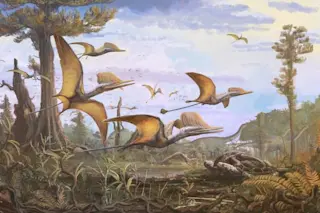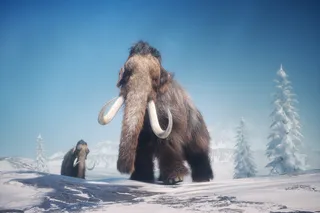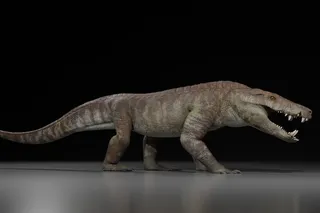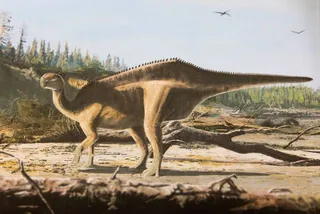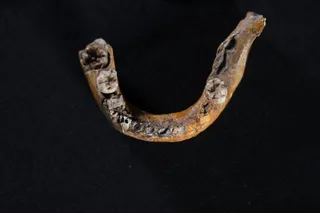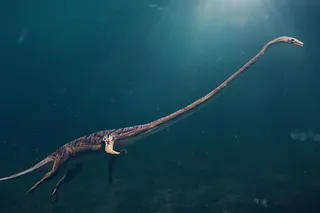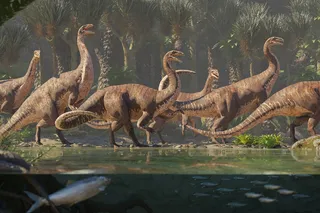Paleontologists have unearthed a new species of pterosaur in a new study published in the Journal of Vertebrate Paleontology. Dubbed Ceoptera evansae, the species found on Scotland’s Isle of Skye shows that pterosaur clades may not have been restricted to one area of the world and were more diverse than previously thought.
“Ceoptera helps to narrow down the timing of several major events in the evolution of flying reptiles," said Paul Barrett, study author and paleobiologist at the Natural History Museum, in a statement. "It shows that the advanced group of flying reptiles to which it belongs appeared earlier than we thought and quickly gained an almost worldwide distribution."
Close-up of Ceoptera evansae's skeleton. Parts of the specimen's shoulder and wing can be seen. (Credit: Trustees of Natural History Museum)
Trustees of Natural History Museum
The new pterosaur brings scientists closer to understanding early pterosaur evolution. They now suspect that ...


